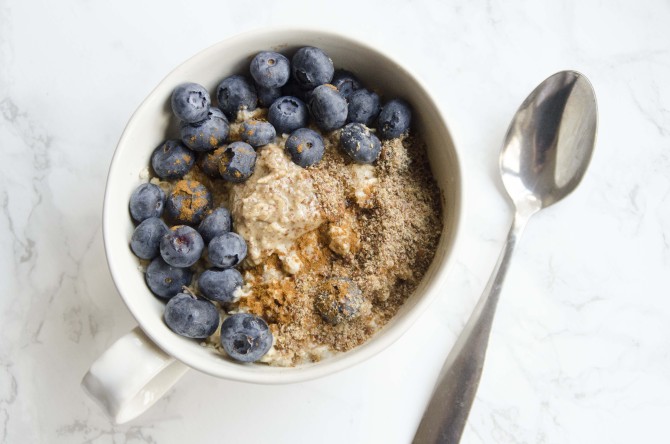Have you ever wondered why some foods leave you feeling hangry an hour after you eat them, even though they’re the same amount of calories as something that leaves you full until your next meal? It’s easy to just look up foods that are considered “healthy.” But what really goes into letting websites claim that a food is healthy or not? Why are certain foods better than others even though they have the same overall calories?

Photo by Robert Wehrli
To be honest, the answer isn’t short and sweet. There are a ton of factors that go into determining what foods are the best for you and what foods you should stay away from. This includes things such as nutrient density, your blood type and your body’s reaction to certain foods.
When considering chronic diseases such as type II diabetes, scientists have noticed that glycemic index is something that more people need to be paying attention to. The easy definition for glycemic index (GI) is how much your blood sugar is raised when you eat a specific food. Sugar (or glucose) is the food that raises your blood sugar the most.

Photo courtesy of Bon Appetite
The problem with glycemic index doesn’t arise (pun intended) with normal increases in blood sugar, because there’s a hormone called insulin in your body to regulate that. However, the more your blood sugar goes up, the more insulin you need. Too much insulin in your blood causes blood sugar to drop way too low and then — BAM — you’re starving all of a sudden.
You get hungry because your body needs a constant source of energy to be able to do simple things. A drop in blood sugar means your body is now asking for more energy.

Gif courtesy of giphy.com
This process occurs when you eat carbs, and “carbs” is just a fancy word for a type of sugar. Now, it makes sense that eating one of these muffins in the morning makes you hungry earlier than eating this omelet does. Even though they have a similar amount of calories, the eggs have a lower glycemic index. This means they are going to raise your blood glucose level a lot less than the carbs do.

Photo by Sophia Kalogeris
But don’t worry, there are things you can do to still eat your favorite foods without feeling these effects. Simply swap out some of those carb calories for healthy fat calories and add some fiber. For example: change up your sweet trail mix, have that banana with some almond butter, or try out these carb replacements.

Photo courtesy of robinskey.com
Another important thing you can do to help your blood sugar? Opt for more whole grains rather than sticking to refined carbs. This means having oatmeal instead of sugary breakfast cereals or choosing whole grain bread for your sandwiches instead of white. Refined grains and alcohol (especially sugary cocktails) are the main culprits for high GI reactions as well as certain fruits like bananas and melons.

Photo by Becky Hughes
The real to maintaining a healthy diet: Balance. It’s obviously okay to let yourself have foods with a high glycemic index, but try not to do it every day. If you really feel like your blood sugar is out of control, maybe it’s time to try this sugar detox.


